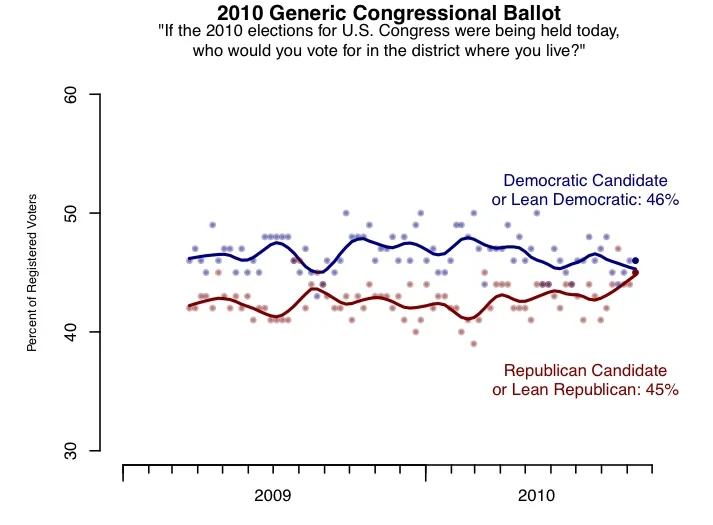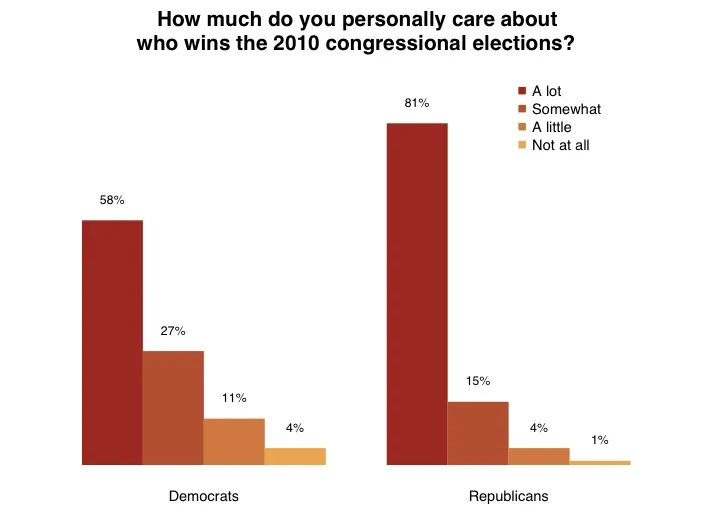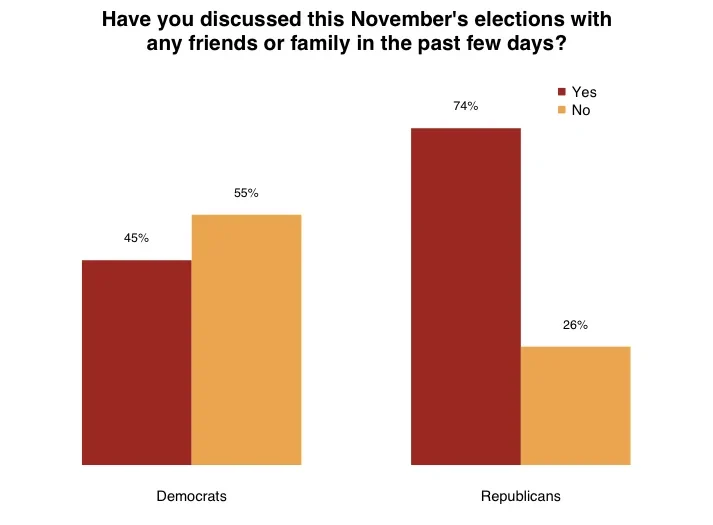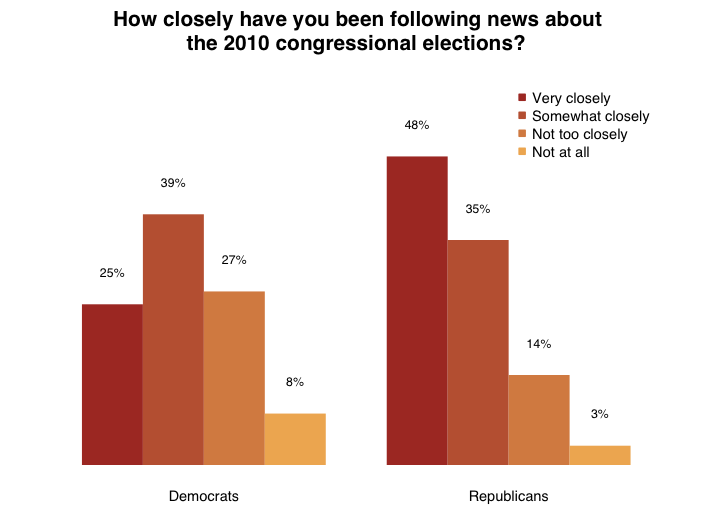With less than 50 days to go before the November election, it’s advantage Republicans. Republicans have gained ground against Democrats in the race for U.S. House of Representatives, with whom they are now in a statistical dead heat. And their supporters are more motivated than Democratic voters. In the latest Economist/YouGov Poll, the Republicans trail the Democrats by one point among registered voters when asked which party they plan to vote for or lean towards in the election for the U.S. House in their district (falling within the poll’s 4% margin of error for registered voters).

45% of registered voters this week favor the Republicans, 46% the Democrats. The Republican advantage becomes apparent when looking beyond the simple act of voting. On issue after issue, Americans declare that the Republican Party is closer to their views than the Democratic Party is. And is some cases, the difference is increasing. Republicans have a seven-point lead on taxes (up from only one-point last month), a 10-point advantage on government spending (up from five points last month), a 13-point lead on immigration (up from four points), and a 13-point lead on terrorism (up from seven points).
| Which party comes closer to you on the following issues? | ||||
|---|---|---|---|---|
| Aug. 7-10, 2010 | Sep. 11-14, 2010 | ||
| Democratic Party | Republican Party | Democratic Party | Democratic Party |
|
|
|
|
|
Taxes | 34 | 35 | 31 | 38 |
Government spending | 29 | 34 | 26 | 36 |
Immigration | 29 | 33 | 23 | 36 |
Terrorism | 27 | 34 | 24 | 37 |
And they have moved into the lead – albeit a small one – on the country’s most important problem – the economy. 36% say the Republicans are closer to their position on the economy, while 33% say the Democrats are. Last month, the Democrats had a two-point lead. In addition, the Republicans now trail the Democrats by two when it comes to health care; last month, the Democrats had a seven-point advantage.
| Which party comes closer to you on the following issues? | ||||
|---|---|---|---|---|
| Aug. 7-10, 2010 | Sep. 11-14, 2010 | ||
| Democratic Party | Republican Party | Democratic Party | Republican Party |
|
|
|
|
|
The economy | 34% | 32% | 33% | 36% |
Health care | 39% | 32% | 38% | 36% |
41% of Americans say the economy is still getting worse.
The Republicans have also gained when it comes to their own image: while Americans don’t like them, they also don’t like the Democrats – and by similar margins. Last month, the Republicans had a much worse image among the public than the Democrats did.
| Do you have a favorable or an unfavorable opinion of the following groups? | ||||
|---|---|---|---|---|
| Aug. 7-10, 2010 | Sep. 11-14, 2010 | ||
| Democratic Party | Republican Party | Democratic Party | Republican Party |
|
|
|
|
|
Favorable | 43% | 36% | 40% | 38% |
Unfavorable | 45% | 52% | 48% | 48% |
Not sure | 11% | 11% | 12% | 13% |
And while Americans may not love the Republican leaders, fewer know them, which may be an advantage. Speaker of the House Nancy Pelosi has a 50% to 20% unfavorable rating from the public. Senate Majority Leader Harry Reid’s rating is 39% to 12% negative.
Their Republican counterparts, Rep. John Boehner and Sen. Mitch McConnell get negative ratings, but far lower ones than the Democratic leaders do. For Boehner, 15% are favorable, while 24% are not. For McConnell, it’s 11% favorable, 22% not.
| Do you have a favorable or an unfavorable opinion of the following people? | ||||
|---|---|---|---|---|
| Nancy Pelosi | Harry Reid | John Boehner | Mitch McConnell |
|
|
|
|
|
Favorable | 20% | 12% | 15% | 11% |
Neutral | 30% | 49% | 60% | 66% |
Unfavorable | 50% | 39% | 24% | 22% |
Americans dislike most of those who are, have been, or would be political leaders – from President Barack Obama to former President George W. Bush, to Sarah Palin and Glenn Beck. But there is one exception: former President Bill Clinton. 52% of Americans have a favorable view of him, and only 27% are unfavorable.
As the election draws closer, Republicans are maintaining their lead when it comes to enthusiasm. 81% of them say they care a lot about who wins this fall, while just 58% of Democrats say that. That 23-point gap is similar to the 25-point lead the Republicans had on that measure last month. Republicans are 29 points more likely than Democrats to have discussed the election with someone (74% of Republicans have, compared with 45% of Democrats). That gap is up from 27 points last month. Many more Republicans than Democrats are paying attention these days: 48% say they are following the campaign very closely; only 25% of Democrats are.









